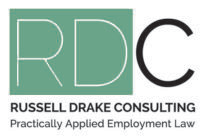Take note of Russell’s advice
Often in the course of managing staff, there comes a time when you may need to confront a situation head-on with the employee to ensure that they truly grasp the depth of the concerns held by the company.
These can often be conversations that many managers want to avoid or feel that they are ill-equipped to be able to handle them well. However, left unaddressed the problems or concerns will only continue and may even escalate to a point where seeking to resolve them then becomes even more difficult.
Difficult conversations may include such topics as having to raise performance or disciplinary concerns with an employee, announcing a restructure that could result in redundancies or advising an employee that there has been a complaint made against them.
The manner in which the unfortunate news is delivered may influence the success of the process that is to follow, and ultimately the outcome that can be achieved, therefore it is well worth considering in advance how best to address the initial conversation.
Outside of the legal (procedural) requirements associated with raising any issues with an employee that have the potential to impact on their terms and conditions of employment, including possible termination of employment, there are several behavioural aspects to consider, including:
- Who is the right person to have the conversation with the employee – being either too close or to distant from the employee may influence negatively how the message is received.
- What facts need to be shared in the initial conversation, verses those that are best to be contained within more formal correspondence.
- Where and when should the conversation occur, taking into consideration the emotional impact or reaction by the employee and the impact of this on their ability to continue within their role or to work with other staff.
- Assessing the risk and liabilities associated with the manner in which the conversation is to occur and ensuring that steps are taken to mitigate these where applicable.
- The tone of language to be used in the conversation to ensure that this does not portray that decisions have already been made and that the company is now just going through the motions of the required process.
- How you can check the understanding by the employee to ensure that the message that you had intended to convey is received in that manner.
- How you can read the employees’ reaction and what applicable support can be offered to assist them to work through any processes that may now need to be implemented.
- Whether following up with the employee outside of the formalities of the process is applicable or not.
- What notes or records need to be taken of the conversation to ensure that evidence exists for a later day if required.
Addressing difficult issues with employees is not something that should be rushed, or something that should be tackled without good preparation and consideration – the potential detrimental impacts on both the messenger and the recipient can be immense.
If you are facing such a situation and have some hesitancy regarding how best to address the matter, please feel free to give us a call for some practical advice and guidance. A small investment in your preparation may give you a large gain in your confidence and knowledge that the outcome that you desire can be successfully achieved.

